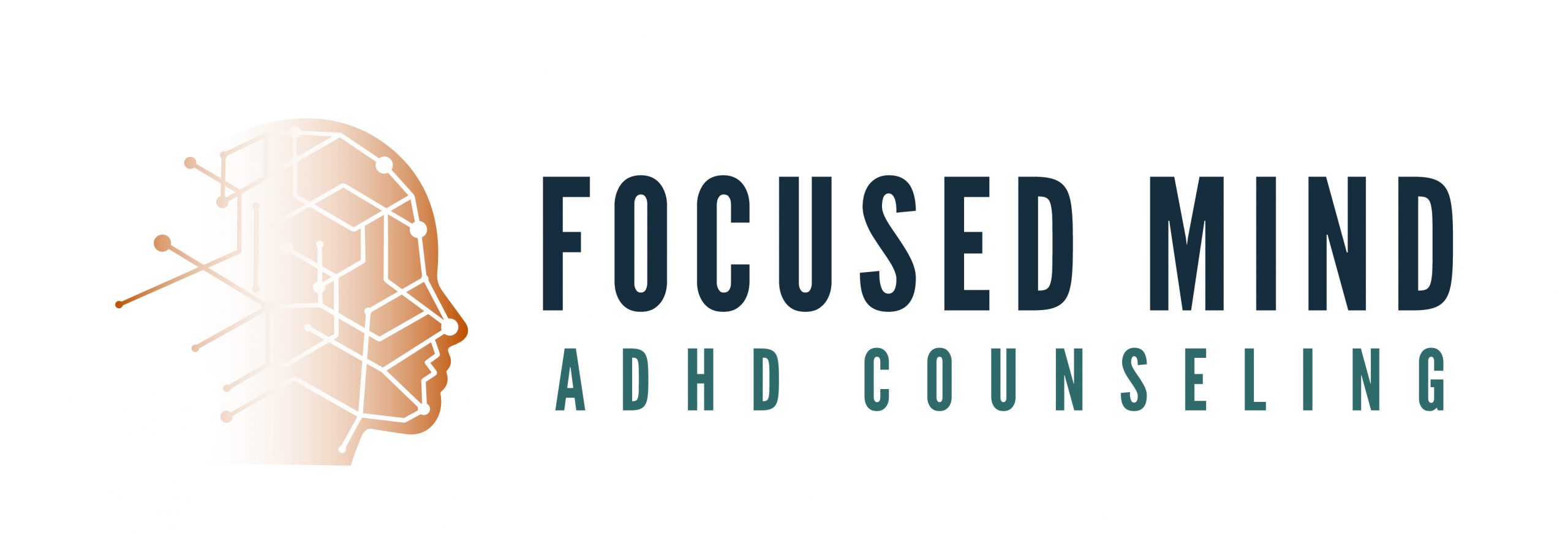
Fighting doesn’t mean failure.
In fact, some amount of conflict in a relationship is normal and healthy. Lisa and Paul didn’t realize this when they had their first major blow-up since moving in together. It felt like the end. When Lisa started moving things around and changing up Paul’s ADHD-friendly routine, it threw off the structure Paul had built up for himself over the years. Suddenly, something as simple as where to put the silverware felt like a relationship-ending issue. Since Lisa was the queen of planning, she quickly googled “ADHD Couples Therapist in Columbus, Ohio,” where Lisa and Paul learned strategies specific to ADHD (Attention Deficit Hyperactivity Disorder) for managing disagreements before they turn into larger conflicts. Here’s a peek at what they discovered.
The ADHD Impact on Relationships
Ned Hallowell describes ADHD as having a “Ferrari brain with bicycle brakes.” And it’s true. ADHD brains are fast.  Sometimes, this creates misunderstandings in relationships, as ADHD people have a harder time regulating emotions than non-ADHD people. From the outside, this can look like going from zero to ninety emotionally or completely shutting down to cope with big feelings. As a result, the ADHD person might be accused of “making too much out of nothing” or appearing to not care at all.
Sometimes, this creates misunderstandings in relationships, as ADHD people have a harder time regulating emotions than non-ADHD people. From the outside, this can look like going from zero to ninety emotionally or completely shutting down to cope with big feelings. As a result, the ADHD person might be accused of “making too much out of nothing” or appearing to not care at all.
In reality, people with ADHD often care deeply about others’ feelings. Their heightened empathy, intuition, and sensitivity can lead to people-pleasing—and they tend to take criticism especially hard.
When someone with ADHD is in a relationship with someone without it, differences in organizational styles can lead to tension. It can take time to find your rhythm as a couple—but open, consistent communication is key to getting on the same page.
3 Tips for Improved Communication
Assume Positive Intent
 Have you heard of rejection-sensitive dysphoria (RSD)? This refers to the intense, wordless pain experienced by people with ADHD when they anticipate criticism. It can also make ADHDers believe intense judgment is being expressed by others around them. And if they are actually being criticized, the emotional pain when this occurs is severe.
Have you heard of rejection-sensitive dysphoria (RSD)? This refers to the intense, wordless pain experienced by people with ADHD when they anticipate criticism. It can also make ADHDers believe intense judgment is being expressed by others around them. And if they are actually being criticized, the emotional pain when this occurs is severe.
It can help to assume positive intent until you hear otherwise. It’s one thing for a partner to be actually insulting and critical; it’s another to believe that’s the case. If you’re concerned about judgment, assume positive intent and then check in and gather more evidence from your partner before jumping to conclusions.
The same skill applies to non-ADHD individuals as well. People with ADHD are usually not trying to be distracted or forgetful. In fact, most of the time, they are trying incredibly hard to not inconvenience others. Assuming an ADHD trait is just that, rather than an attempt to be hurtful, can help reduce the potential for conflict.
Practice the Pause
When two people are highly triggered, neither one will feel understood. If you find yourself seeking validation or understanding by yelling, it’s best to give it a rest. Particularly with ADHD, the nervous system needs to decompress. It’s always better to pause in a fight: walk away, calm your emotions, and then try again. The key is rescheduling the conversation for a later time to ensure you both get a chance to talk things out.
Repair
A fight is usually just a fight, but if the scars remain, it can lead to an overall unhealthy relationship. Whenever possible, extend a peace offering by apologizing for your part in something or validating the other person’s emotions. If there was a conflict, there were likely hurt feelings. Learning to repair the emotional scars after a conflict can ensure that one fight doesn’t end up damaging the relationship in the long term.
Repairing a relationship is not the same as being right or wrong. In fact, there is usually no right or wrong; there are just two people with two different sets of perspectives and feelings, using a pattern of communication that is helpful or hurtful. To survive your first fight, be sure it’s more useful than hurtful. If communicating productively is a challenge, contacting an ADHD Couples Therapist in Columbus, Ohio can help remove the emotional roadblocks in order to make getting on the same page possible.
Key Takeaways
- Fighting in any relationship is normal and healthy.
- ADHD relationships have unique challenges, usually having to do with Rejection Sensitive Dysphoria (RSD), emotional regulation, and mismatched organizational styles.
- It can be helpful to assume positive intent, practice the pause to avoid further escalation, and repair what is broken after conflict.
Start ADHD-Focused Couples Therapy in Columbus, OH
Looking for more individualized support? You don’t have to lack connection as a couple.
ADHD-focused couples counseling can help improve communication. Our counseling practice in Columbus, Ohio has caring therapists who specialize in ADHD testing and ADHD treatment. To start your counseling journey with Focused Mind ADHD Counseling, follow these simple steps:
- Fill out the contact form to schedule a free 15-minute phone consultation.
- Meet with one of our caring therapists.
- Stop feeling stuck. Start feeling seen.
Other ADHD Services Offered at Focused Mind ADHD Counseling
ADHD-focused couples counseling is not the only service we offer at our Columbus, OH counseling practice. At Focused Mind ADHD Counseling, we offer a variety of mental health services, including ADHD testing. As an adult with ADHD, we know you may also benefit from adult ADHD treatment, anxiety treatment for ADHD, counseling for men with ADHD, adult ADHD treatment, or depression counseling for ADHD. You can also view our blog for more resources!


